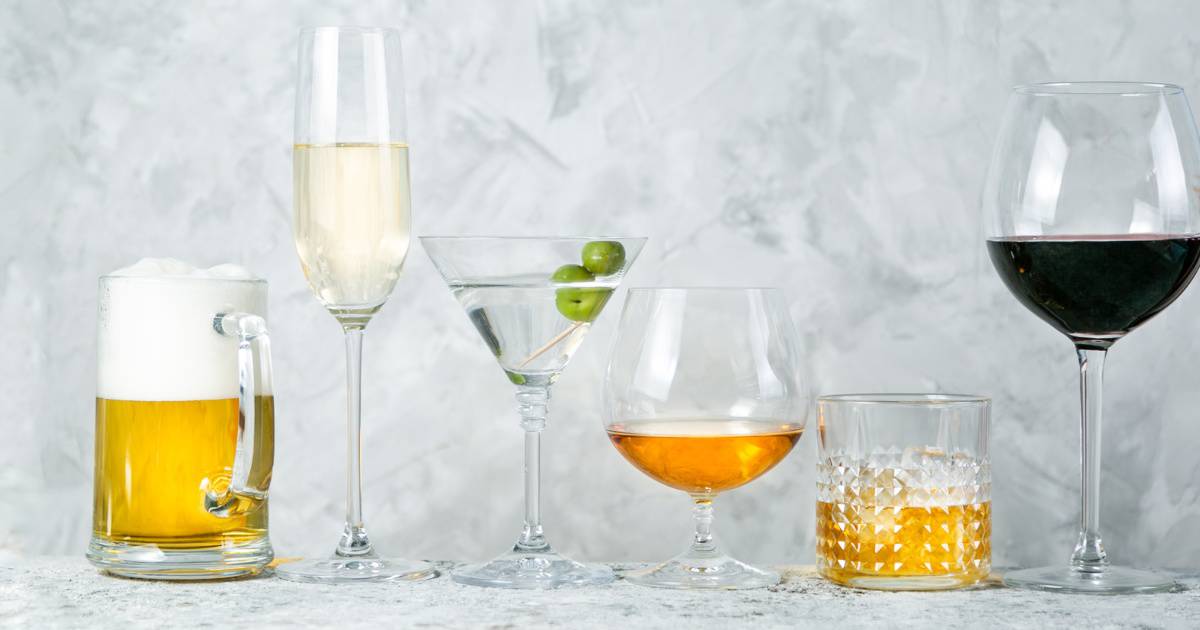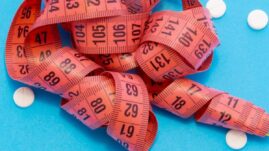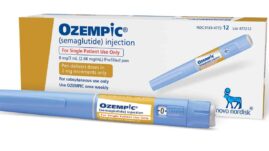If you’ve recently been prescribed Ozempic (semaglutide) and you drink alcohol, you may be wondering whether this combination is healthy, advisable, or even safe.
This article will explore what happens when you drink alcohol while taking Ozempic, the potential side effects, and how you can safely drink alcohol while taking the medicine.

Key Facts
- Alcohol can worsen the side effects of Ozempic such as nausea and increase the risk of low blood sugar, especially in people also taking insulin.
- While there is no direct drug interaction between Ozempic and alcohol, it’s important to drink in moderation and be mindful of blood sugar levels.
- To drink safely while on Ozempic, never have alcohol on an empty stomach, alternate alcoholic drinks with water, and monitor blood sugar closely before, during, and after drinking.
- Always discuss your alcohol consumption with your healthcare provider when taking Ozempic.
What happens when you drink alcohol while taking Ozempic?
Drinking alcohol while on any prescription medication can lead to complex interactions, so it’s important to speak with your doctor about potential reactions.
Here are some important considerations if you choose to drink while taking Ozempic:
Increased risk of low blood sugar
Especially if you are also on insulin, alcohol can significantly lower your blood sugar levels, potentially causing hypoglycemia.
Impaired judgment
Alcohol may affect your decision-making capabilities, which can be particularly dangerous if you need to monitor your health closely, as in the case of diabetes.
Worsening of side effects
Alcohol can intensify Ozempic’s side effects such as nausea, vomiting, diarrhea, and decreased appetite.
Long-term health risks
Regular alcohol consumption can lead to high blood pressure, stroke, and liver, heart, and kidney diseases — conditions that are also common complications of diabetes.
The U.S. Centers for Disease Control and Prevention (CDC) recommends limiting alcohol intake to no more than one drink per day for women and two drinks per day for men.
If you are dealing with alcohol addiction, it is important to seek immediate help. Contact your healthcare provider or call the Substance Abuse and Mental Health Services Administration hotline, 1-800-662-HELP (4357), available 24/7.
Ozempic and alcohol’s effect on blood sugar levels
Both Ozempic and alcohol are powerful substances that can significantly impact people with diabetes. Here’s what you need to know:
Risk of low blood sugar
Alcohol can drastically reduce blood sugar levels, a risk that increases if you also take insulin or sulfonylureas. Unlike insulin, Ozempic doesn’t cause acute low blood sugar but does reduce blood sugar levels gradually over time.
Combined effects
When alcohol is consumed alongside Ozempic, especially with insulin, there is a compounded risk of hypoglycemia.
Recognizing hypoglycemia symptoms
It’s important to be aware of hypoglycemia symptoms, which may be harder to identify while intoxicated. Hypoglycemia is typically defined as a blood sugar level lower than 70 mg/dL (3.9 mmol/L).
Symptoms include:
- Shakiness
- Rapid heartbeat
- Shallow breathing
- Sweating
- Hunger
- Nervousness
- Impaired coordination, which can lead to falls
- Weakness
- Fatigue
- Confusion
- Dizziness
- Headaches
Severe cases can lead to unconsciousness and require emergency medical intervention.
Potentially significant consequences
Untreated severe hypoglycemia can lead to seizures and coma, posing a life-threatening situation.
Should you drink alcohol while taking Ozempic?
If you do not currently drink alcohol, there is no health-related reason to start. No specific amount of alcohol is universally recommended for consumption.
That said, there is no known direct drug interaction between alcohol and Ozempic, and many people who use Ozempic consume alcohol without adverse effects.
If you are a moderate drinker, occasional alcohol consumption is generally not harmful while taking Ozempic.
However, it is important to drink in moderation and to always be mindful of potentially low blood sugar levels.
If you’ve recently started Ozempic, your doctor may recommend refraining from alcohol consumption until your body adjusts to the medication and your insulin levels stabilize, which could take several weeks.
How to drink safely when you have diabetes
When drinking alcohol as someone who has diabetes, it’s important to follow these guidelines to ensure your safety:
Monitor blood sugar
Never drink alcohol if your blood sugar levels are low. Always check your blood sugar before, during, and after drinking, especially before going to sleep.
Manage insulin
Avoid heavy drinking if you have significant amounts of insulin on board (IOB) to prevent hypoglycemia.
Hydration
Alternate alcoholic beverages with water to stay hydrated.
Informed company
Ensure you are accompanied by people who are aware of your diabetes.
Food intake
Do not drink on an empty stomach. Have a snack rich in fat and protein before bed if you’ve been drinking in the evening to stabilize your blood sugar overnight.
Emergency preparedness
Carry glucose tabs or juice for quick treatment of low blood sugar. Wear a continuous glucose monitor (CGM) and a medical ID bracelet to alert others in case of an emergency.
Communication
Always inform someone about your whereabouts and expected return time when going out.
Frequently asked questions
How much alcohol can you drink while taking Ozempic?
Binge drinking is highly discouraged, especially when taking diabetes medications like Ozempic that can cause low blood sugar levels.
For most people taking Ozempic, moderate drinking — defined as up to one drink per day for women and no more than two drinks per day for men — is generally considered safe.
Always discuss your alcohol consumption and any concerns with your healthcare provider to ensure safety given your specific health circumstances.
How long after taking Ozempic can you drink alcohol?
Ozempic does not cause acute low blood sugar levels nor does it interact with food or beverages, including alcohol, in the way insulin does. Therefore, the timing of your Ozempic dose does not need to be adjusted based on when you drink alcohol.
Despite the lack of a direct interaction, though, you should never drink alcohol on an empty stomach or when your blood sugar is low, as these conditions can worsen potential side effects.
Read more in: Foods to Avoid While Taking Ozempic.
Does Ozempic make you not want alcohol?
The answer to this question is still unclear.
Research involving rats and mice has shown that those treated with GLP-1 agonists like Ozempic exhibit a reduced desire for alcohol compared to rats not given the medication. This effect has also been observed with other substances such as opioids, nicotine, and cocaine.
Although these findings are promising, the impact of Ozempic on alcohol cravings has not been fully explored in humans.
However, preliminary studies, including clinical trials where participants with obesity received GLP-1 agonists combined with cognitive-behavioral therapy (CBT), reported reduced alcohol consumption compared to those receiving a placebo (inactive treatment).
Imaging studies have shown that in participants receiving GLP-1 agonist treatment, brain regions associated with addiction are less active when exposed to alcohol-related cues.
Clinicians have noted anecdotally that some patients start losing their taste for alcohol after beginning treatment with Ozempic, suggesting a potential influence on alcohol preference.
Will I be able to feel my low blood sugars if I’m on Ozempic and drink alcohol?
Properly detecting low blood sugar levels can be challenging while drinking alcohol, as the sensations of hypoglycemia can closely mimic those of being tipsy or drunk.
Ozempic may complicate this further, as some of its side effects — including nausea, dizziness, weakness, and vomiting — are similar to both the effects of excessive drinking and the symptoms of low blood sugar.
Due to these overlapping symptoms, it’s important to drink alcohol in moderation, continually monitor your blood sugar levels when drinking, and always have fast-acting glucose sources like tablets or juice readily available.
Did you find this article helpful? Click Yes or No below to let us know!





